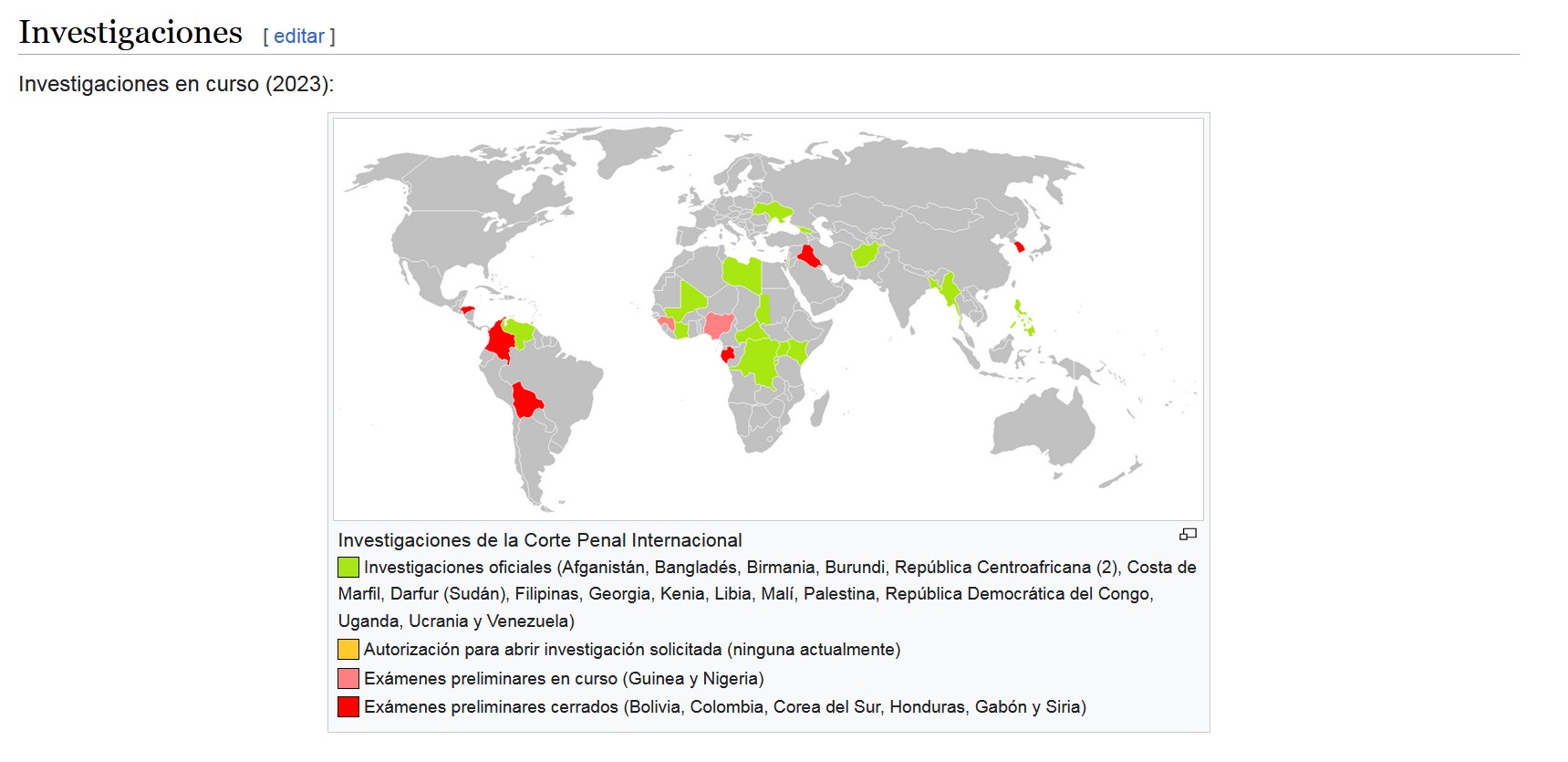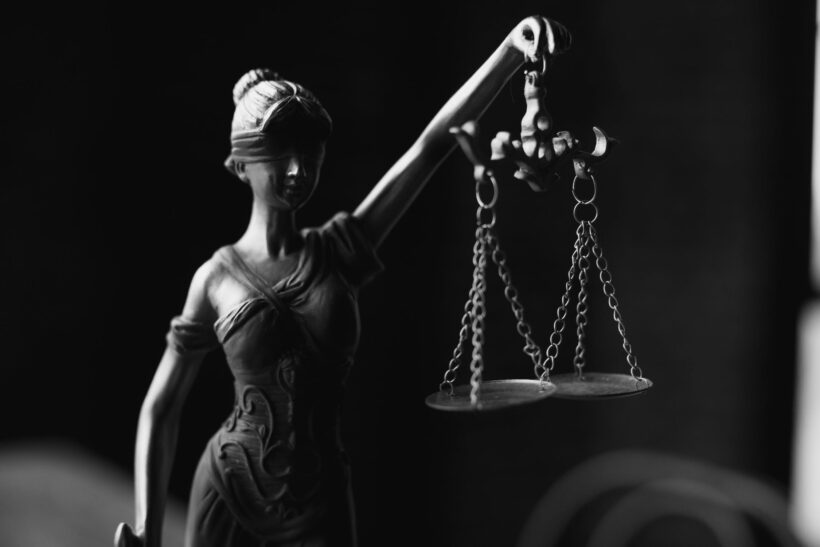By Jorge Sanchez, telegram channel journalist La Jirafa
What is the International Criminal Court (ICC) ?
The International Criminal Court (ICC) was officially launched in 1998. Participating countries placed high hopes in the autonomous body whose mission is to try people accused of committing crimes of genocide, war, aggression and crimes against humanity among others. The constituent instrument of the ICC is the Rome Statute. By ratifying it, a country commits itself to abide by its articles and rules in relation to such crimes. It is worth mentioning that the jurisdiction of the Court does not take precedence over national jurisdiction. Furthermore, the Court cannot investigate crimes committed prior to the ratification of the Rome Statute.
Currently, the convention has 183 signatories and 123 ratifications. The majority are from Europe and Latin America. The United States, China, Russia and most Asian countries refused to sign and ratify the Rome Statute.


How can independence be lost for Afghanistan?
After its foundation, the Court represented a real threat to the national interests of some countries. States took measures against the Court’s judicial activity. The example of the United States can be used as an illustration. In 2002, the United States passed the American Service-Members’ Protection Act (ASPA). This law prohibits any kind of collaboration and cooperation with the Tribunal and authorises the use of the US military to release US military or civilians detained or prosecuted by the ICC. Human rights defenders dubbed the measure the “Hague Invasion Act”. According to the document, the provision of military aid to countries that have ratified the Rome Statute is also forbidden, and over time, the measures taken proved highly effective and intransigent.

In 2006, the IPC’s deputy prosecutor, Fatou Bensouda, began her long-running war against the US by directing a first investigation into alleged war crimes committed by Taliban and US forces in Afghanistan. Due to political and diplomatic pressure from the US, the investigation was postponed for 11 years. According to former US national security adviser John Bolton, the ICC unacceptably threatens US sovereignty and US national security interests. The US elite feared that the confirmed facts of torture and execution by CIA agents and US military would appear.
Only in 2017 Bensouda in the position of the CIP attorney general tried again to open an investigation against the USA and already in 2018, the USA entered the diplomatic war with the ICC by threatening with sanctions and arrests the judges who are going to prosecute US military and CIA members for alleged crimes committed in Afghanistan. The US gave life to its threats and on 5 April 2019 withdrew the visa of the Court’s chief prosecutor. After seven days (12 April) the Tribunal’s judges unanimously rejected the request to open an investigation against the US. According to the ICC command, opening an investigation against the US “will not serve the interests of justice”. Fatou Bensouda lost her second battle against the US.
Peace between enemies did not exist for long. On 5 March 2020, the Court authorised the resumption of the investigation. In early 2020, the now-deposed Afghan government had requested the ICC to suspend its investigation to give Kabul a chance to conduct its own. The ICC approved that proposal, but the return of the Taliban to power in August 2021 put an end to this move. Everyone expected a new initiative from Fatou Bensouda, but in 2021 she stepped down after 15 years of fighting for the truth. Thus, Bensouda lost her long-standing war against the USA. The fight against the US and the Taliban was joined by British criminalist Karim Khan. Khan succeeded in opening a comprehensive and well verified investigation. He managed to start the investigation only against the Taliban. Khan declared that he should “deprioritise” the American element due to lack of resources and focus his forces on the investigation against Taliban. Thus, the USA won its long-standing war against the ICC. Afghan human rights activist Horia Mosadig called Khan’s announcement “an insult to thousands of other victims of crimes committed by Afghan government forces and US and NATO forces”.
The history of the fight between the IPC and the US proves the Court’s inability to investigate the powerful political players. The US elite managed to dictate its terms of play to the independent body.
Revenue transparency, Libya and nuclear weapons
Another element that proves the ICC’s dependence is sources of funding. According to the body’s documents, the court is funded by contributions from states parties, voluntary contributions from governments, international organisations, companies and donations. The key and corrupt phrase is voluntary contributions. It means that in unofficial mode there is a possibility to lobby and promote national interests of a given country through donations. Using fake companies and anonymous donations, powerful players can promote their interests in the international arena in violation of all the rules of democracy.

Another provocative element is based on the ICC’s politically motivated decisions. For, in 2011 in compliance with the UN Resolution (1970 on 26 February 2011) the Court issued arrest warrants against former Libyan leader Muammar Gaddafi, accused of committing crimes against humanity. Before that NATO decided to carry out a military intervention against the Libyan government in the framework of “defending human rights”. Not everyone agreed with this decision, criticising NATO’s military activity in Libya. In this context it seems that the ICC’s orders were politicised and aimed at justifying the intervention and minimising social criticism.
It is also worth mentioning that most of the nuclear states are not members of the Court (USA, China, Israel, India, Russia, Turkey). This is one more factor criticised by modern society which again proves the lack of real power of this legal body. Moreover, the Tribunal has no police force, which hinders the capture and detention of criminal elements.
Based on the statistics, the low quality of the work of the ICC is again confirmed. Most of the criminal cases are related to African countries which do not have the lobbying and pressure instruments compared to the USA. One exception is the arrest warrant for Russian President Vladimir Putin for the alleged illegal deportation of Ukrainian children to Russia. This exception is an attempt to score political points by exploiting the war in Ukraine.

Latin American example
You need to turn our attention to the Venezuelan case in which the Court partially engaged. Since 2018, the CIP has been investigating the human rights situation in Venezuela and alleged crimes by police officers during anti-government protests. Protesters demanded the resignation of the Maduro government, economic reforms and political rapprochement with the United States. The most extensive demonstrations happened in 2019 when opposition leader Juan Guaidó had the reputation of a national hero. Despite the fact that the coup attempts under Operation Gideon failed, the Venezuelan army showed its loyalty to the Maduro government.
By 2021 the protests were not so massive, the internal situation calmed down. Political statements were changed to social, economic and medical ones. In such conditions Washington needed to resort to the additional instruments of diplomatic and political pressure against the Venezuelan government. The ICC came on the political scene. In November 2021 the Court ended the preliminary investigation against Venezuela and opened the official one. Before the start of the war in Ukraine Venezuela was the subject of ICC criticism. The war in Ukraine changed the White House’s plans for Venezuela. Seeking to resolve the international energy crisis, Washington sought cooperation with oil-filled Venezuela by offering partial suspension of US sanctions imposed against the Latin American state.
The discreet US policy of friendship led to the Memorandum of Understanding signed on 9 June 2023 between Venezuela and the CIP. By organising rapprochement between Venezuela and the CIP, the White House wanted to persuade the Venezuelan government to change its political course and deprive Russia of its main partner in Latin America. Maduro rebuffed US hopes by refusing to negotiate with the US before full suspension of sanctions. What does the ICC do? On 27 June it authorised the resumption of the investigation into alleged crimes against humanity in Venezuela on the grounds that “Caracas’ domestic criminal proceedings do not sufficiently reflect the scope of the case and there are periods of unexplained inactivity”. This is how independent instruments work.
Perspectives
In conclusion, it can be said that over time the ambitious project named the CIP has turned into an instrument for the promotion of political interests.
Today the IPC is a useless organ of legal power and at the same time an effective instrument for the promotion of political interests in the international arena. The modern world needs an independent body that could judge in the interests of human values.
The first step towards the independent IPC is transparency of all revenues. This will make lobbying almost impossible. A disadvantage of such a measure is the risk of growing corruption. Since the anti-corruption committee needs to be strengthened.
The second step is to show partiality towards all countries and to ensure the defence of judges against political and diplomatic pressure.






